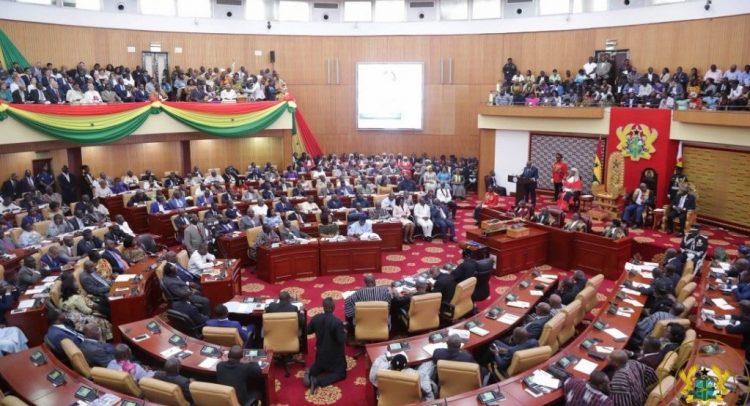Parliament of Ghana
A legislation seeking to eliminate functional redundancies and regulate the educational sector effectively and efficiently has been passed by Parliament and is set to become law.
The Minister of Parliamentary Affairs, Osei Kyei-Mensah-Bonsu, moved the motion for the adoption by the House on behalf of the Education Minister. It was seconded by the Member of Parliament (MP) for Wa West, Joseph Yieleh Chireh.
The Education Regulatory Bodies Bill, 2019 is made up of six parts and 127 clauses, and describes the structures of the various regulatory agencies.
They are the National Council for Tertiary Education (NCTE), the National Accreditation Board (NAB), the Council for Technical and Vocational Education and Training (COTVET), the National Teaching Council (NTC), and the National Inspectorate Board (NIB).
Part one of the Act restructures and merges the existing National Council for Tertiary Education and the National Accreditation Board into one institution, to be known as the Ghana Tertiary Education Commission.
Part two has merged the Council for Technical and Vocational Education and Training, the National Board for Professional and Technician Examinations and the National Vocational Training Institute into a new body, to be known as the National Commission for Technical and Vocational Education and Training.
The third, fourth and fifth parts of the Act provide for the National Teaching Council, the National Inspectorate Authority and the National Council for Curriculum and Assessment respectively.
Part six, which is the final part of the bill, deals with the administrative and financial provisions in respect of the five regulatory bodies established under the bill.
The Minister of State in charge of Tertiary Education, Prof. Kwesi Yankah, during the debate on the bill, said it had no intention of rendering people redundant, and that it was coming to harmonize the consolidated bodies in order to lead to greater efficiency in the running of tertiary and other levels of education in the country.
“Various aspects of education have come under criticism. It is best understood alongside of existence of a number of documents for tertiary institutions, including the various reforms in the tertiary education sector,” he noted during the second reading by the House.
Prof. Yankah indicated that Ghanaians should bear in mind that the document (bill) had travelled a long journey to arrive in the House, adding that various stages of the journey of the document had taken care of issues raised, such as small differences and overlaps of existing documents.
He, however, pointed out that the bill was silent on the process of obtaining certification, accreditation and charter, and that this aspect of the document would rest with the regulatory body, the Ghana Tertiary Education Commission (GTEC), that will come out with specific regulations not stipulated in the bill.
On the issue of access, Prof. Yankah stated that it is one area that had confronted tertiary education in the country, and that the limitation of access all these years had been an unfortunate perception about private university.
“In all the discussions that I have heard on the floor, I get the impression that private universities are probably setting us back in terms of quality. What we often forget is that we have so many spotlights in private universities’ challenges that we intend to completely ignore the challenges faced by public universities,” he argued.
The minister said the public had not put the scale objectively on the issues, and asked rhetorically, if relevant at all, which of these two aspects of issues of education are probably running us down.
“What extend has the National Accreditation Board spotlighted public universities and raised issues that we normally see about private universities?” he quizzed and continued that nobody talks about student-lecturer ratio at public universities which is clearly a function of NAB.
“But when a private university faulted in one way or the other it is natural that we are all up in arms because of the perception that private universities are substandard,” he added.
By Ernest Kofi Adu, Parliament House

